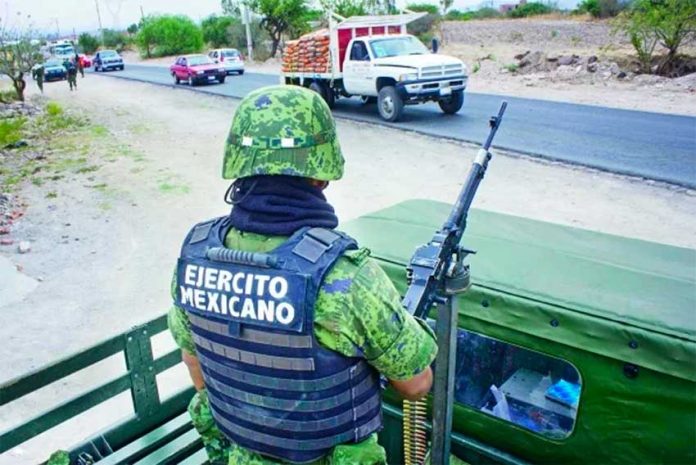The National Human Rights Commission (CNDH) has repeated its criticism of the federal government’s proposal to create a national guard, declaring that the security force “is not appropriate or viable.”
The proposal to create the new force was approved by Senate committees on Monday and all members of the upper house will have the opportunity to vote on it in an upcoming plenary session.
In a statement, the CNDH urged members of Congress to put respect and protection for human rights first in the constitutional amendments that must be approved in order for the new security force to be created.
The commission said that from a human rights perspective and in consideration of the constitutional amendments as they are currently set out, “the national guard proposal is not appropriate or viable because it doesn’t guarantee nor does it substantively contribute to ending impunity.”
The commission also said that the proposal “weakens civil and democratic institutionality” and contravenes Mexico’s international human rights obligations by “regularizing the participation of the armed forces in public security tasks.”
Amnesty International, Human Rights Watch and several other non-government organizations have also rejected the proposal, arguing that it will perpetuate a failed militarized crime-fighting strategy first implemented by former president Felipe Calderón in 2006, and result in more human rights violations being committed by the armed forces.
The CNDH said the military should only continue carrying out public security tasks on an “exceptional and temporary” basis while “the technical, operational, legal and structural capacities of police and civil institutions are strengthened.”
Responding to the criticism today, President López Obrador pledged that if approved, the national guard will conduct itself in a way similar to United Nations peacekeepers, a group that is sometimes referred to as the Blue Berets.
“Human rights will be respected,” he said. “So you have a clear idea, the national guard is going to be like the United Nations peacekeeping forces.”
The president urged senators from the opposition National Action Party (PAN), who oppose the security force’s creation, to reconsider their position “because it’s a very important issue to guarantee the security of the country.”
The proposal sent to the Senate by the lower house of Congress recommends that the new security force have a “mixed” or “combined” command made up of both civil and military leaders.
The Secretariat of Security would be in charge of designing the policies and programs the national guard implements while the secretariats of National Defense and the Navy would have operational command.
Claudia Ruiz Massieu, national president of the Institutional Revolutionary Party (PRI), said yesterday that the party’s state governors and federal senators support the creation of the force but stressed that their backing was conditional on it having a civilian command and not infringing on the authority of state and municipal governments.
The Senate is expected to start debating the proposal on Thursday, while López Obrador has made it clear that he wants the force to be created as soon as possible.
The president yesterday accused the PAN senators who oppose the National Guard of “unleashing the violence” in Mexico and turning the country into “a cemetery.”
Former president Calderón, who initiated the so-called war on drugs, was from the same party.
More than 200,000 people have been murdered in the 12 years since soldiers and marines took to the streets, and the military has been accused of a range of human rights violations including extrajudicial killings, enforced disappearances and torture.
Source: El Universal (sp), El Financiero (sp)
